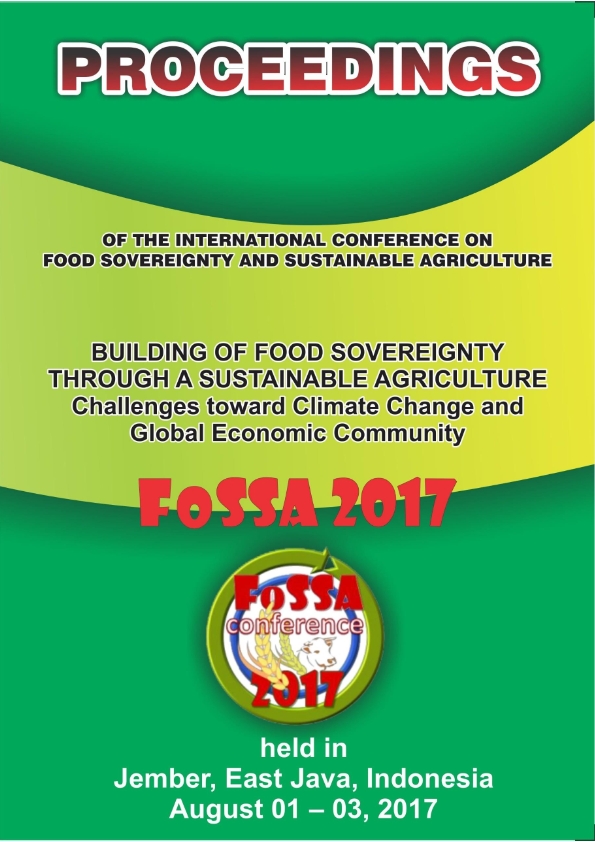BRIA PROJECT – A PUBLIC PRIVATE PARTNERSHIP TO IMPROVE FARMERS’ LIVELIHOOD
Abstract
Better Rice Initiative Asia (BRIA) Indonesia is a partnership program between public and
private sector, known as the Public Private Partnership (PPP), funded by the public sector -
namely the Ministry of Economic Cooperation and Development of Germany (BMZ) and BASF
of the private sector, implemented by German International Cooperation (GIZ) and BASF to
improve the economic welfare through increased production and better market access.
Within the implementation period (2015-2017), BRIA Indonesia is targetted to reach 6,700
farmers from five chosen districts of two provinces; Langkat, Deli Serdang, Serdang Bedagai,
and Simalungun (North Sumatra Province), and Jember (East Java Province). The project has
reached the total 3,540 farmers in 183 FFS at the selected locations. BRIA promotes the
adoption of Good Agriculture Practices (GAP) of rice for sustainable increase in rice
productivity, and increasing the involvement of young people in the agricultural sector. It is
done through the establishment of Farmer Field School (FFS) at village level as rice farming
learning center applying Good Agriculture Practice (GAP). The FFS is a training system
approach that aims to transfer technical and practical know-how and skills to rice farmers
through technical training, physical demonstration in the field and learning by doing
exercises. The project has identified four main technologies to improve farmers’ incomes and
agricultural productivity, including seed technology, row-spacing â€legowo†planting method,
balanced fertilization by using soil test kit (PUTS), and integrated pest management (IPM).
BRIA Indonesia has also initiated to develop the seed grower business model to improve seed
quality. The goal was to encourage farmers to become seed growers, and considering this as a
business opportunity. In total around 150 farmers were trained by BRIA on how to produce
high quality seeds. These 150 farmers can support 17,000 hectares or 1,200 farmers,
resulting in an increase in yield for these farmers. Aligned with those activities, a farmer
database has been created and used internally for managing and monitoring the process
including farmer identity and farm profiles, production, technology and farming practices
adopted, geotagging and others. Furthermore, instead of its purpose as project monitoring
and evaluation, the database system will be improved to support government policy on rice
crop insurance and financing facility for agriculture sector.


